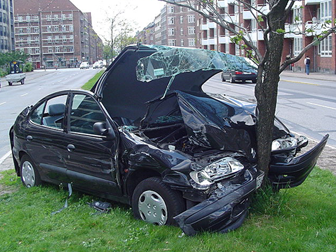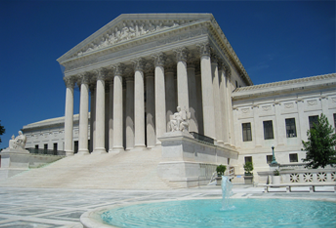Medical payments coverage, also known as “Med Pay,” is an optional coverage that Massachusetts drivers may purchase as a part of their auto insurance coverage policy. Med Pay covers the reasonable and necessary medical expenses incurred as a result of an automobile accident.
Med Pay will cover medical expenses for persons occupying an insured’s motor vehicle with consent at the time of an accident, as well as the insured or any household member struck by a motor vehicle as a pedestrian or injured while occupying someone else’s vehicle with consent at the time of the car accident.
Unlike some other types of auto insurance coverage, Med Pay does permit stacking in certain circumstances. Stacking occurs when the injured party combines all available auto insurance policies providing medical payments coverage to create a larger pool of coverage to satisfy his or her actual damages. For example, a person injured in a motor vehicle accident may be able to seek medical expenses under Med Pay from multiple policies, including: the policy on the vehicle he or she was occupying at the time of the crash; his or her own policy; and from a policy of a household member. If the volume of medical expenses permit and no general exclusions apply, the passenger would be entitled to Med Pay from each of those three policies, in the order listed above.
There are exclusions to Med Pay coverage, one of which is called the regular use exclusion. The regular use exclusion prevents Med Pay from being available in two key scenarios, unless a premium is charged on the vehicle involved in the accident. The first exclusionary scenario occurs when the insured or his or her spouse (when the spouse is a household member) is struck by or is occupying a vehicle that is owned or regularly used by the insured or his or her spouse. The second exclusionary scenario occurs when a household member is occupying or struck by a motor vehicle regularly used by the insured or any other household member.
Additionally, Med Pay will usually not cover medical expenses incurred more than two years after the accident, or medical expenses paid by personal injury protection (PIP) coverage or that would have been payable under PIP if a deductible had not been chosen. It is important to understand the relationship between PIP coverage and Med Pay coverage. The two types of coverage are mutually exclusive, and payments under PIP must be exhausted before Med Pay coverage will kick in.
Generally, PIP coverage pays for the first $2,000 of medical expenses incurred in an auto accident if the injured party has private health insurance. Any medical expenses above that are paid by private health insurance. PIP coverage may not pay medical expenses above the $2,000 figure if the expenses fall outside of the insured’s health insurance coverage. But Med Pay can cover these out-of-coverage costs.
According to a bulletin and letter published by the Massachusetts Division of Insurance, the order of payment of medical bills will be: PIP coverage pays the first $2,000; then Med Pay pays; then the health insurance provider pays as much as it can pursuant to its contract; and, finally, any remaining PIP coverage can be allocated to additional medical bills.
There are two additional caveats to Med Pay worth noting. First, if two or more motor vehicles are covered under the same policy, and the injured person was occupying one of them, the Med Pay coverage must be collected from the coverage on that vehicle only. Second, if the insured was a pedestrian or an occupant in another vehicle at the time of the accident, he or she may only collect Med Pay from the coverage on the vehicle with the highest limits of coverage. Where two vehicles on the same policy have the same limits, the Med Pay will be collected from the coverage on both vehicles based on pro rata sharing.





